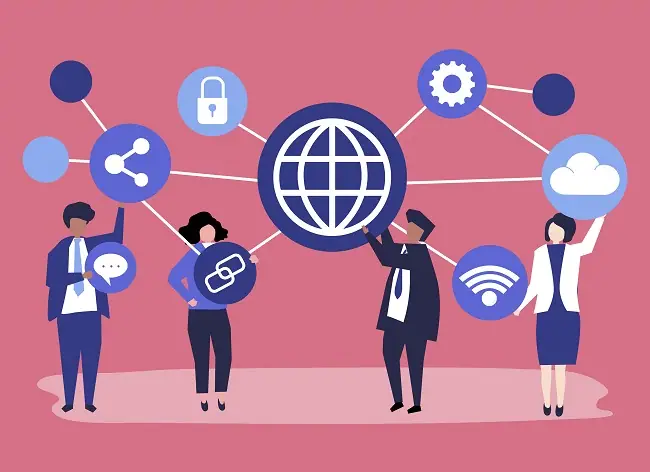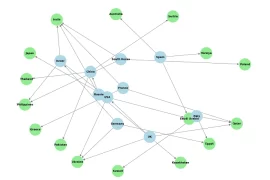In today’s digital age, proxies have become an essential tool for many individuals and businesses. Proxies act as intermediaries between your device and the internet, offering a wide range of benefits that can enhance your online experience. From improved security and privacy to accessing geo-restricted content, proxies are invaluable. This article explores how using proxies can help in everyday life, providing practical examples and insights.
Enhancing Online Privacy
One of the primary benefits of using a proxy is the enhancement of online privacy. When you connect to the internet through a proxy server, your IP address is masked, and the proxy’s IP address is used instead. This helps to keep your personal information and browsing habits private from websites and online trackers.
Privacy Benefits of Using Proxies
| Benefit | Description |
| Anonymity | Proxies hide your IP address, making it difficult for websites to track you |
| Data Protection | Enhanced security protocols protect your personal information |
| Secure Transactions | Ideal for safe online banking and shopping |
Bypassing Geo-Restrictions
Geo-restrictions can limit access to certain websites or online services based on your geographic location. Proxies can help bypass these restrictions by allowing you to connect to the internet from a different location.

Advantages of Bypassing Geo-Restrictions
1. Access to Content: Stream videos, music, and other content that might be restricted in your region.
2. Cultural Exchange: Explore websites and platforms from different countries.
3. Enhanced Research: Access academic papers and resources not available in your location.
Proxy Services and Their Uses
| Service Type | Use Case | Example |
| HTTP Proxy | Web browsing and streaming | https://proxys.io/en/p/http-proxy |
| SOCKS Proxy | Gaming and P2P sharing | Enhanced performance and reduced lag |
| HTTPS Proxy | Secure transactions | Online banking and e-commerce |
Improving Security
Proxies can significantly improve your online security. By acting as a barrier between your device and the internet, proxies can help protect you from various online threats, such as hacking attempts and malware.
Security Benefits of Using Proxies
● Firewall Bypass: Proxies can bypass firewalls, allowing secure access to blocked sites.
● Data Encryption: Many proxies offer encryption, protecting your data from interception.
● Malware Protection: Proxies can block malicious sites, reducing the risk of malware infections.
Security Enhancements with Proxies
| Security Feature | Description |
| Encryption | Protects data transmission by encrypting the data |
| Malware Blocking | Prevents access to known malicious websites |
| Anonymity | Keeps your IP address hidden from potential attackers |
Enhancing Online Performance
Proxies can also improve your online performance by caching frequently accessed content and reducing latency. This is particularly useful for activities that require high-speed internet, such as streaming and online gaming.
Performance Benefits of Using Proxies
1. Faster Load Times: Cached data reduces the time it takes to load websites.
2. Reduced Latency: Improved routing can decrease lag, enhancing online gaming and video calls.
3. Bandwidth Savings: Compressing data can save bandwidth, especially useful for mobile data users.
Managing Internet Usage
Proxies can be used to manage and monitor internet usage. This is particularly beneficial for parents and organizations that want to control access to certain websites and ensure responsible use of the internet.
Internet Management with Proxies
● Content Filtering: Block inappropriate or distracting websites.
● Usage Monitoring: Track internet usage to identify patterns and potential issues.
● Access Control: Restrict access to certain sites during specific times.
Benefits of Internet Management
| Benefit | Description |
| Content Control | Ensures safe and appropriate internet use. |
| Productivity | Limits access to distracting sites, boosting productivity |
| Parental Control | Protects children from harmful content online |
Conclusion
Using proxies in everyday life offers numerous benefits, from enhanced privacy and security to improved online performance and the ability to bypass geo-restrictions. Whether you’re looking to protect your personal information, access restricted content, or manage internet usage, proxies can be a powerful tool.
FAQ
What is a proxy and how does it work?
A proxy is an intermediary server that separates end users from the websites they browse. Proxies provide varying levels of functionality, security, and privacy by routing your internet traffic through the proxy server, masking your real IP address.
How do proxies improve online security?
Proxies can encrypt data, block malicious websites, and hide your IP address, making it difficult for hackers to target you. They act as a barrier between your device and potential online threats.
Can I use a proxy to access geo-restricted content?
Yes, proxies can bypass geo-restrictions by allowing you to connect to the internet from a different location. This enables access to content that may be unavailable in your region.
Are proxies legal to use?
Generally, using proxies is legal. However, their legality can depend on how they are used and local laws. It’s important to use proxies ethically and within the bounds of the law.
What types of proxies are there and which one should I use?
There are several types of proxies, including HTTP, HTTPS, and SOCKS proxies. Each serves different purposes: HTTP proxies are good for web browsing, HTTPS proxies for secure transactions, and SOCKS proxies for activities requiring high performance like gaming and P2P sharing.







